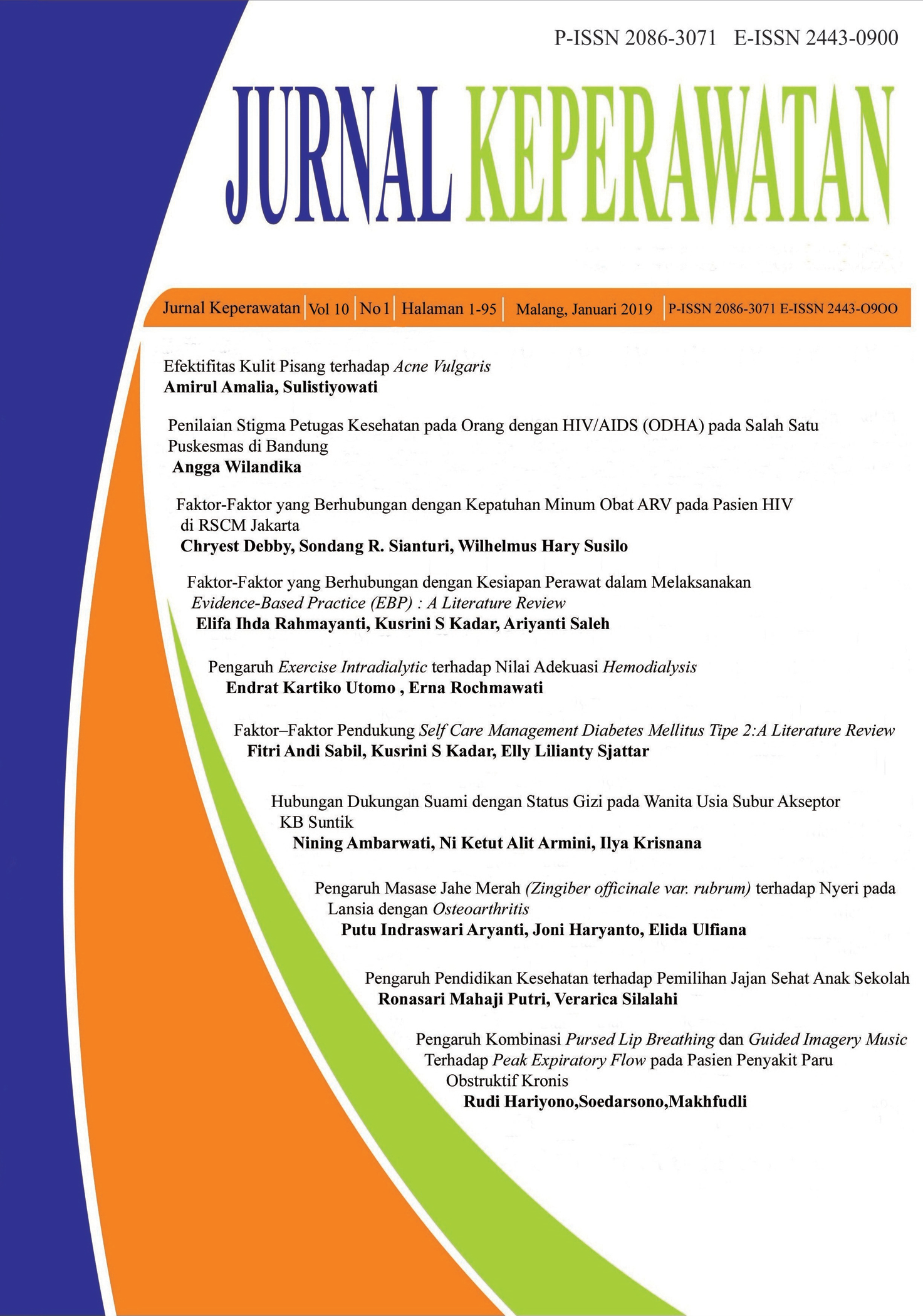The Influence Of Health Education On The Selection Of Healthy Snacks For School
DOI:
https://doi.org/10.22219/jk.v10i1.6372Keywords:
pendidikan kesehatan, pemilihan jajan, sehat, anak sekolahAbstract
Usia sekolah merupakan masa pertumbuhan dan perkembangan anak.Asupan makan yang baik dan bergizi akan sangat menunjang pertumbuhan dan perkembangan anak usia sekolah. Jajanan bisa dianggap sebagai salah satu kebutuhan anak sekolah yang harus dipenuhi. Pemilihan jajan anak yang tidak sehat berdampak pada kesehatan anak. Tujuan penelitian untuk mengetahui pengaruh pendidikan pendidikan kesehatan terhadap pemilihan jajan sehat anak sekolah.Merupakan penelitian quasy eksperiment dengan the one group pre test post test design. Populasi adalah seluruh anak SD Merjosari 3 Malang sejumlah 196 orang. Sampel sejumlah 69 anak diambil melalui purposive sampling. Instrumen dalam penelitian ini adalah kuesioner. Analisa data menggunakan uji t test 2 sampel berpasangan. Hasil penelitian diketahui pengetahuan pemilihan jajan anak meningkat setelah pemberian pendidikan kesehatan dari kategori cukup ( 54,2%) menjadi baik (47%).Hasil uji statistic menunjukkan bahwa ada pengaruh pendidikan kesehatan terhadap pemilihan jajan anak di SDN 3 Merjosari Malang (pvalue 0,00) dengan kekutan hubungan 0,912
Downloads
Downloads
Published
Issue
Section
License
Authors who publish with this journal agree to the following terms:
- Authors retain copyright and grant the journal right of first publication with the work simultaneously licensed under a Creative Commons Attribution-ShareAlike 4.0 International License that allows others to share the work with an acknowledgment of the work's authorship and initial publication in this journal.
- Authors are able to enter into separate, additional contractual arrangements for the non-exclusive distribution of the journal's published version of the work (e.g., post it to an institutional repository or publish it in a book), with an acknowledgment of its initial publication in this journal.
- Authors are permitted and encouraged to post their work online (e.g., in institutional repositories or on their website) prior to and during the submission process, as it can lead to productive exchanges, as well as earlier and greater citation of published work (See The Effect of Open Access).

This journal is licensed under the a Creative Commons Attribution-ShareAlike 4.0 International License.














